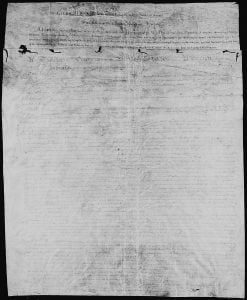Treaty of June 24, 1862
Articles of agreement and convention, made and concluded at Washington City, on the twenty-fourth day of June, eighteen hundred and sixty-two, by and between William P. Dole, commissioner, on the part of the United States, and the following-named chief and councilmen of the Ottawa Indians of the united bands of Blanchard’s Fork and of Roche de Bœuf, now in Franklin County, Kansas, viz: Pem-ach-wung, chief; John T. Jones, William Hurr, and James Wind, councilmen, they being thereto duly authorized by said tribe. Article 1. The Ottawa Indians of the united bands of Blanchard’s Fork and of Roche de Bœuf, having … Read more

